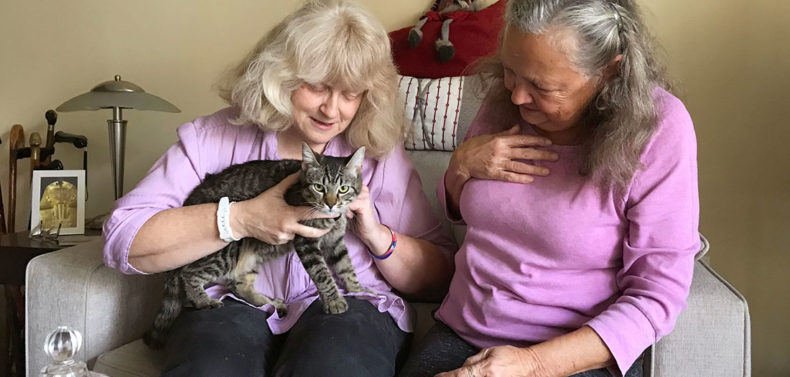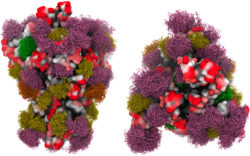How many new pets did you have the pleasure of meeting via Zoom this year? For many of us—and let’s be honest, often to our delight—video chat meetings were often interrupted with the sound of dogs barking, kids screeching or cats rambunctiously making their presence known to an audience.
As we move toward a more normal way of life, post-pandemic, recent research, alongside local ACC animal shelter adoption and owner surrender data, suggests that pets have been an integral part of human health and wellbeing in the last year. According to Kristall Barber, director of the Athens-Clarke County Animal Services Department, rates for adoptions in the last few years have remained steady and didn’t waver much in comparison to adoption rates for 2018 and 2019. In 2020, there were 258 dogs and 165 cats adopted; 275 dogs and 183 cats adopted in 2019; and 300 dogs and 183 cats adopted in 2018. The difference in 2020, she says, was a result of the community stepping up to foster pets when the community went into full quarantine.
“I think adoption rates have stayed the same mostly,” Barber says. “Fostering, however, went through the roof for a while. I definitely think there was a connection between people in the pandemic wanting to foster pets [during that initial quarantine,] but not wanting to commit to it fully. During the first six months of the pandemic, we had a lot more pets available for foster and lots of local residents who were willing and able to be a foster home for pets than usual.”
Seeking out a pet companion in the midst of a pandemic may seem like an obvious choice for many, and scientific evidence backs the idea that pet ownership has positive human health benefits. One recent study—a collaboration among the UGA College of Veterinary Medicine, the Augusta University/University of Georgia Medical Partnership, UGA College of Public Health, UGA’s Institute of Gerontology, Athens Community Council on Aging, Athens Area Humane Society and Campus Cats Rescue—provides some perspective on just how much pet ownership can benefit older adults. According to the study, “seniors with pets are 36% less likely to report loneliness than non-pet owners, experience reduced stress, have fewer doctor visits, have reduced blood pressure and risk for heart disease, and develop a sense of purpose that comes with helping a homeless cat.”
The study was led by Sherry Sanderson, an associate professor at the University of Georgia College of Veterinary Medicine. “Much suffering among older people living alone is the result of boredom, and feelings of helplessness and loneliness,” Sanderson says. “Animal companionship is a known antidote to loneliness.”
According to Susan Sanchez, another professor at the College of Veterinary Medicine, there are plenty of positive benefits of being a pet owner. “Animals keep us grounded, and they help us feel good. We are creatures that need to love and feel loved,” she says. The pandemic, she adds, allowed many people to really dedicate the time and effort that’s required to really take care of a new family member.
While the U.S. is turning the corner on the pandemic, it’s important to remember what issues regarding humans, animals and environmental health existed before this pandemic. Sanchez’s research focuses on the One Health concept—that human, animal and environmental health are all integrally linked. She is quick to point out that we should not only be paying attention to our own health and our pets’ health, but also the health of animals in our environment going forward. Given that the virus that causes COVID-19 was a zoonotic virus—a pathogen that jumped from animals to humans—it’s important to consider just how our actions as humans affect not only our own wellbeing, but the wellbeing of animals and the environment around us.
“Although we are very happy that the pandemic is turning a corner, we should go back and look at the situation [that existed before the pandemic],” says Sanchez. Practices like the overuse of antibiotics that affected both animal and human environments prior to the pandemic continue to be an issue that humans should keep a keen eye on going forward.
Like what you just read? Support Flagpole by making a donation today. Every dollar you give helps fund our ongoing mission to provide Athens with quality, independent journalism.










